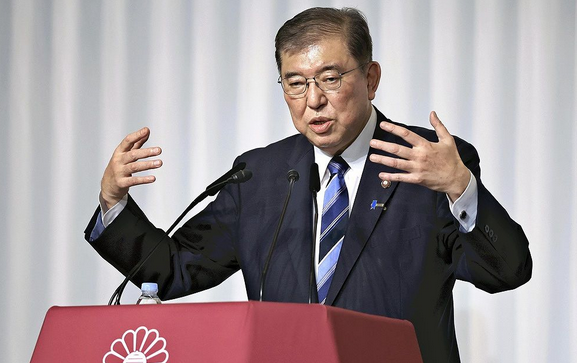TOKYO – As Shigeru Ishiba ascends to become Japan’s Prime Minister on October 1, the world watches with great interest. His victory marks a significant shift from the established economic policies of his predecessors, promising a new direction for Japan’s economy and potentially altering the geopolitical landscape of Asia and beyond.
Ishiba’s economic blueprint diverges from the stock market-centric approach, focusing instead on bolstering household income and addressing inflation. His intent to maintain loose monetary policies while not opposing gradual interest rate hikes suggests a balanced strategy aimed at fostering sustainable growth. Moreover, Ishiba’s commitment to wage growth outpacing price growth, additional support for low-income individuals, and higher corporate taxes indicates a populist tilt that may reshape Japan’s domestic economic landscape.
The implications of Ishiba’s leadership extend beyond Japan’s borders. His plans to encourage companies to expand into underdeveloped regions could stimulate job creation and economic diversification, reducing Tokyo’s overwhelming centrality in Japan’s economy. This decentralization may offer new opportunities for international investors and businesses seeking to tap into Japan’s regional markets.
On the international stage, Ishiba’s economic vision points to continuity with some adjustments, hinting at a nuanced approach to foreign policy and trade. His stance could influence Japan’s role in regional frameworks and its relationships with global powers, particularly in how it navigates the complex dynamics with China. The financial markets have already signaled their anticipation of change, reacting swiftly to the election results.
As Asia and the world adapt to Japan’s new leadership, the true extent of Ishiba’s impact will unfold over time. His policies may herald a new era of Japanese innovation and growth, with potential ripple effects across global economic and political spheres. (zai)

